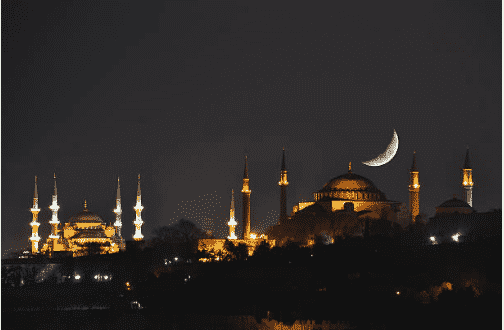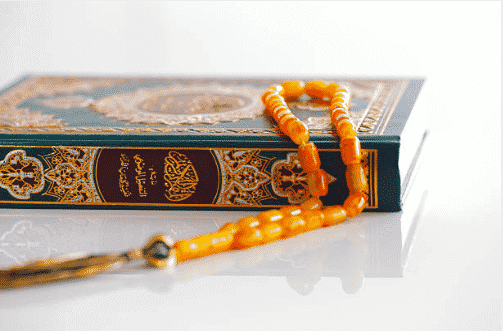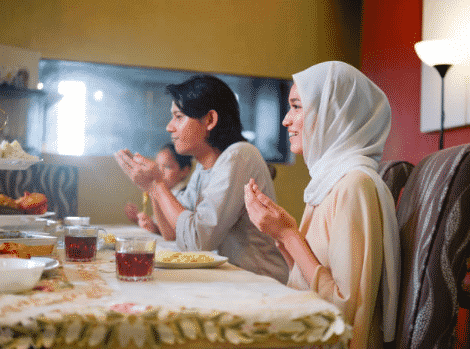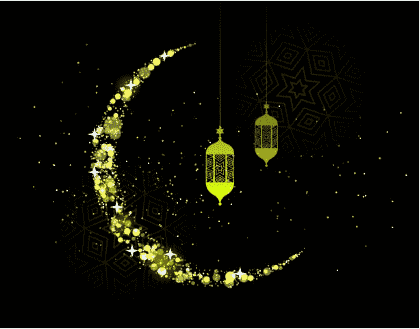The short winter days have made the month of Ramadan as easy as it will ever get this year in Australia. In contrast, there are Muslims in the Northern Hemisphere (such as Iceland) who are fasting almost 20 hours a day! With less than 12 hours of fasting, Australian Muslims have more than half their day to make the most of a month that demands the believer dig deep and cleanse their core in order to be deserving of the celebration at the end of the journey, Eid-ul-Fitr.

Ramadan
To understand and appreciated Eid, a culmination of a month’s efforts, the Ramadan month itself needs to be understood. Like all major religions, Islam asks its followers to abstain not merely from food but from distractions for a regulated period as a beneficial practice.
Ramadan is very important to more than a billion Muslims around the globe because:
*All the Books in major religions (Torah and the Bible) were revealed to the apostles in their time in Ramadan. Muslims believe that the prophets of Judaism and Christianity are also Prophets in Islam.
*The Divine communication from God was first revealed to Prophet Muhammad (peace be upon him) in a cave close to Makkah, Saudi Arabia in the month of Ramadan
*The communication in these Books is a mercy from God to his creation, to inform us of our past and reveal secrets of His creations and that which shall occur in the future; it guides those who believe and accept the divine communication to follow a path from darkness to light and thereby become successful in this world and the hereafter.
*The Holy Quran states, O ye who believe! Fasting is prescribed to you as it was prescribed to those before you, that ye may (learn) self-restraint. (Fasting) for a fixed number of days; but if any of you is ill, or on a journey, the prescribed number (Should be made up) from days later. For those who can do it (With hardship), is a ransom, the feeding of one that is indigent. But he that will give more, of his own free will, it is better for him. And it is better for you that ye fast, if ye only knew. [Surah Baqarah: 183, 184]

The verses allude to the wider requirements of fasting such as charity and self-restraint in addition to the health benefits of intermittent fasting, which modern societies are still discovering. The popularity and proven benefit of the 5:2 fast diet, and the experience of non-Muslims who fast and are surprised with the results on their health and wellbeing, are seeds of proof that are garnering belief in a practice Muslims follow with blind faith. Fasting is also abstinence from daily distractions and the negativity of bad practices we indulge in throughout the year. Fasting is about regulating our excesses and becoming both physically capable as well as spiritually improved. Ramadan is the Muslim month of detox and Eid is the day we celebrate successfully completing the detox program. The efforts of the month result in an Eid that is a celebration of the improvements we make on ourselves and the hope that we can maintain the good practices we’ve adopted till the next detox month.

But Ramadan is more than just fasting and abstinence from food and bad habits. It’s also disciplining ourselves and striving to feel closer to Allah spiritually. Allah has specified that the first ten days (1-10 of Ramadan) are the days of Mercy and Muslims should seek Allah’s Mercy in these days. The next ten days (11-20 of Ramadan) are the days of Forgiveness and Muslims should seek Allah’s forgiveness and repent for sins in those days. The last ten days (21-30 of Ramadan) are to seek Refuge in Allah from the Hellfire and thereby remind Muslims of the finiteness of this life and the repercussions of our actions in the hereafter. All of this is seen by Muslims around the world as a blessing from Allah and the excitement, love and care between Muslims and all we come into contact with multiplies in Ramadan when we all break our fast together and stand together in prayer.
Fasting allows us to broaden our perceptions and empathise with others who cannot enjoy the privileges of food and shelter we take for granted. When our world view broadens, our problems become smaller and we have time and scope to acknowledge and address the problems of others. Ramadan is a time to give generously to charities at home and abroad and to share what we have with the less fortunate. Celebrating Eid with Muslims and non-Muslim alike gives people a chance to learn more about each other’s faiths to bridge the cultural and religious gaps, and in doing so shed our prejudices and phobias. A festival is a great start to that journey of knowing.
Eid
On Eid day, Muslims will get up early to bathe and cleanse themselves, put on new or special clothes, perfume themselves and attend the Eid prayer. This year Eid falls on a weekday and many Muslims will go into work after their morning prayer. As a Muslim, this is the perfect opportunity to celebrate Eid with colleagues and tell them about the month just passed and what it’s meant for your personal growth. Telling your story and showing the precious care Islam affords its believers will go a long way to dispelling the misconceptions, mistrust and hate that surrounds Islam today. It will set up our society to be more understanding and respectful of each other. If we all become the best person we can be, Muslim or not, if we can all understand and makes space in our hearts for each other, then hate will have no place in society.

Eid then is not so much about the activities we indulge in but rather the people we share it with. People strengthen their ties of family, friendship and community, through rituals of prayer, gift giving and parties. Communities create an identity for themselves and a legacy for their children in a country so open and welcoming to us and our way of life. Eid is about sharing what we have and caring for who we are with. And most of all Eid is about being grateful to our Creator for all the bounties and blessings He has bestowed upon us – a celebration of the life he has endowed.
READ ALSO: Keep calm, it’s Ramadan





